Enhancing Soft Skills for DevOps Engineers: Essential Non-Technical Skills to Thrive
Consulting and Client Management
Critical Thinking Problem Solving and Being Methodical
Welcome to DevOps Soft School! In this lesson, we’ll dive into three essential soft skills—critical thinking, problem solving, and being methodical—that build client trust by showcasing not just what you deliver, but how you work.
1. Critical Thinking in DevOps
Critical thinking is the disciplined process of objectively assessing situations, gathering reliable data, evaluating options, and making informed decisions. In a DevOps environment, it helps you:
- Assess the scope and impact of incidents or projects
- Minimize risks and maximize positive outcomes
- Choose tools and techniques that truly address the core problem
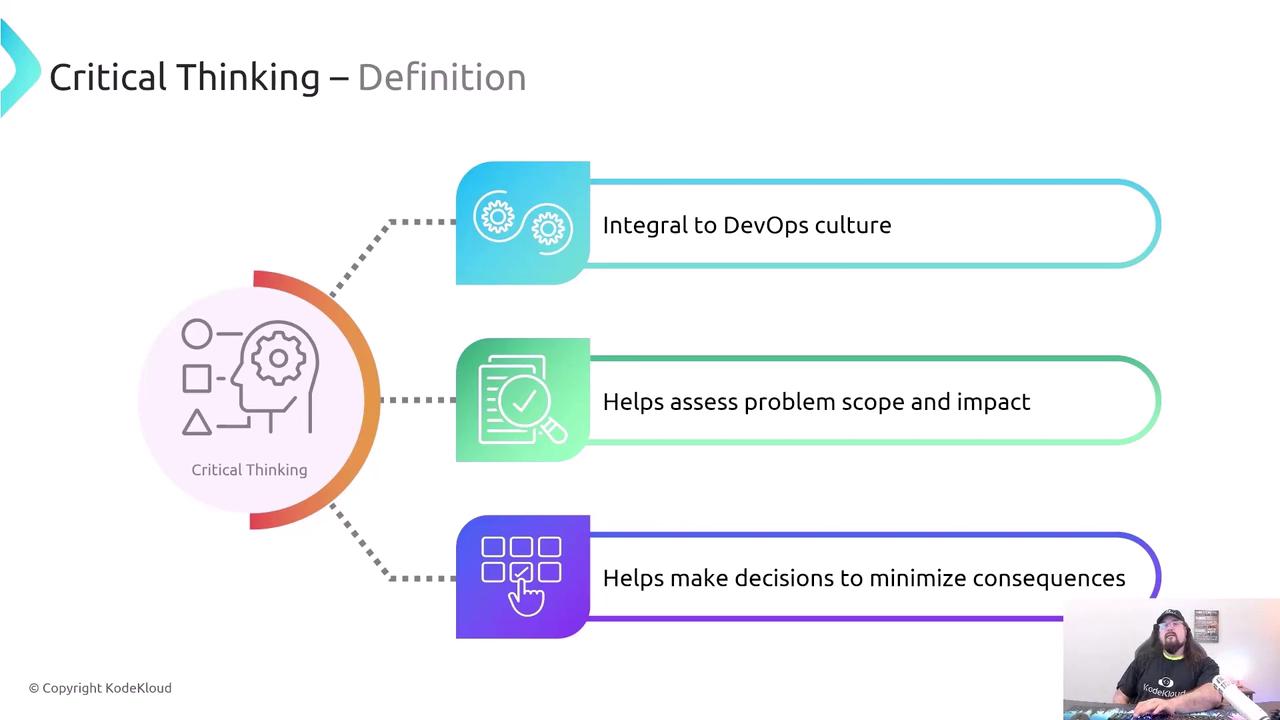
Key practices for sharpening critical thinking:
- Question existing processes and assumptions
- Understand why before diving into how
- Rely on diverse, trustworthy information sources
- Listen actively and observe without bias
- Cross-verify unexpected or provocative data through research
Note
Before adopting any new tool or workflow, pause to evaluate its fit. Gather at least three alternatives and compare them objectively.
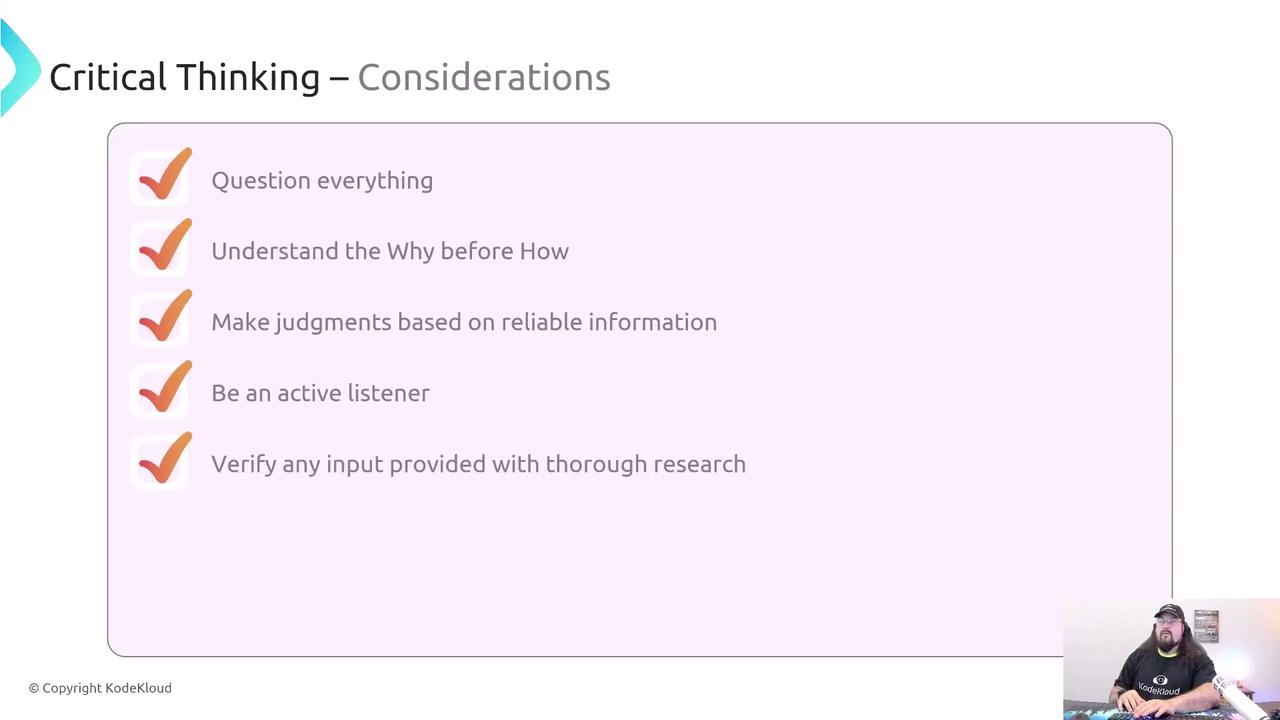
2. Structured Problem Solving
Problem solving extends critical thinking by focusing on resolving a specific challenge through a structured cycle:
- Identify the problem
- Analyze root causes
- Ideate creative solutions
- Implement and iterate until success
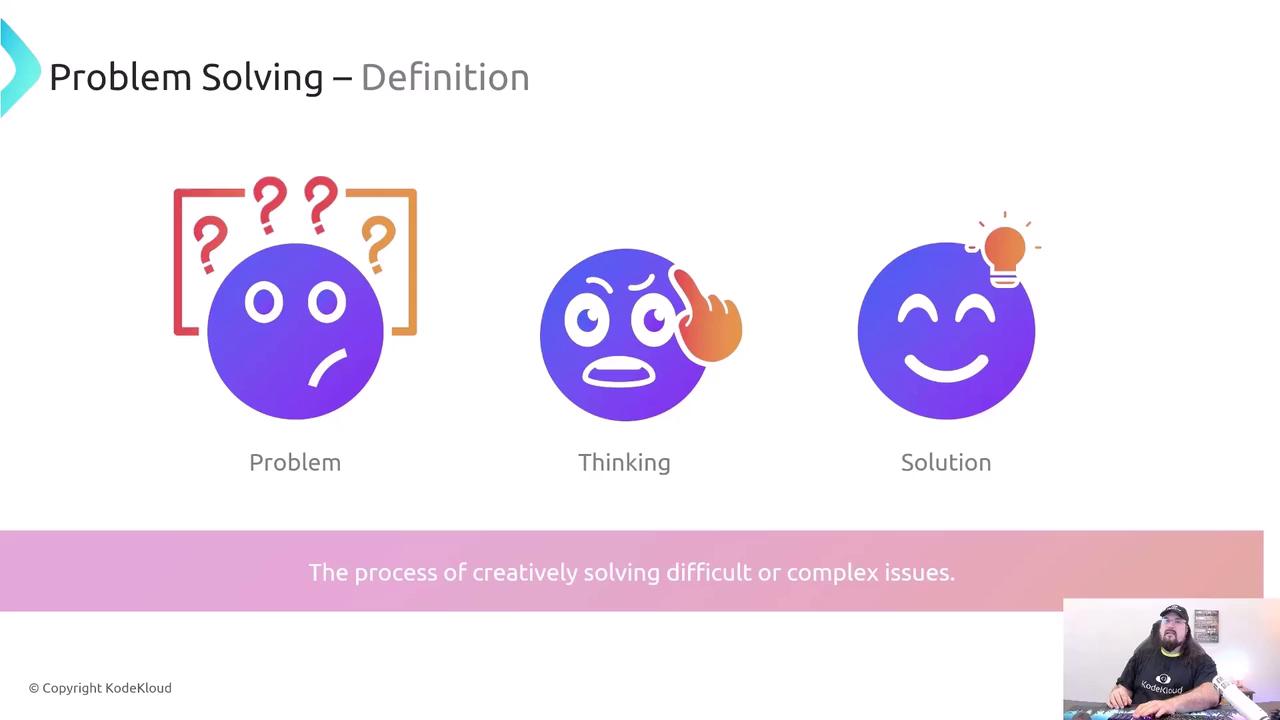
In DevOps, we strive for continuous improvement—fixing root causes rather than applying quick patches. Here’s a comparison of popular techniques:
| Technique | Purpose | Example in DevOps |
|---|---|---|
| Root Cause Analysis (RCA) | Uncover underlying issues in postmortems | Blameless incident reviews |
| A3 Thinking | Structured, visual problem documentation | Creating A3 report for outages |
| Value Stream Mapping | Optimize end-to-end delivery flow | Visualizing CI/CD pipeline stages |
| Design Thinking | User-centric solution ideation | Gathering developer feedback loops |
| Systems Thinking | Holistic view of dependencies and impacts | Modeling microservices interactions |
| Peer Review | Leverage multiple perspectives | Code reviews & pair programming |
| Mind Mapping | Visualize causes and solution paths | Brainstorming infrastructure changes |
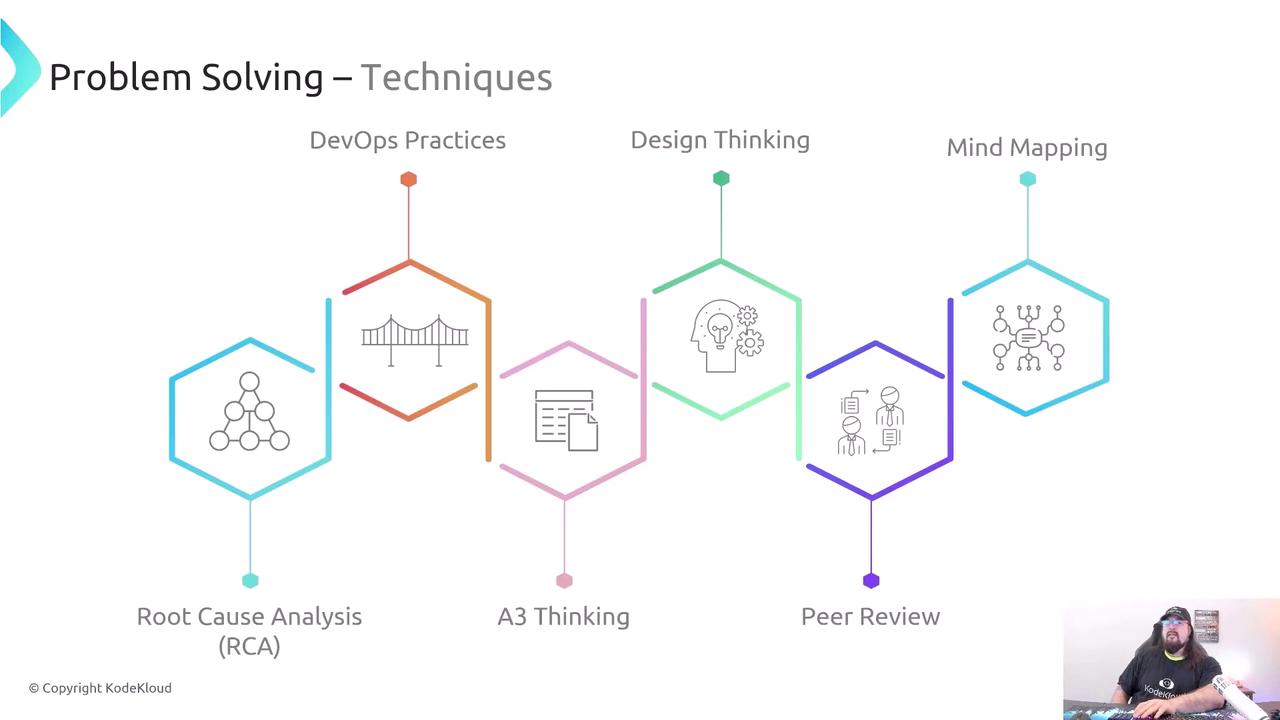
DevOps engineers often use infinite feedback loops—sometimes even mobbing— to unlock creative solutions and enhance system resilience.
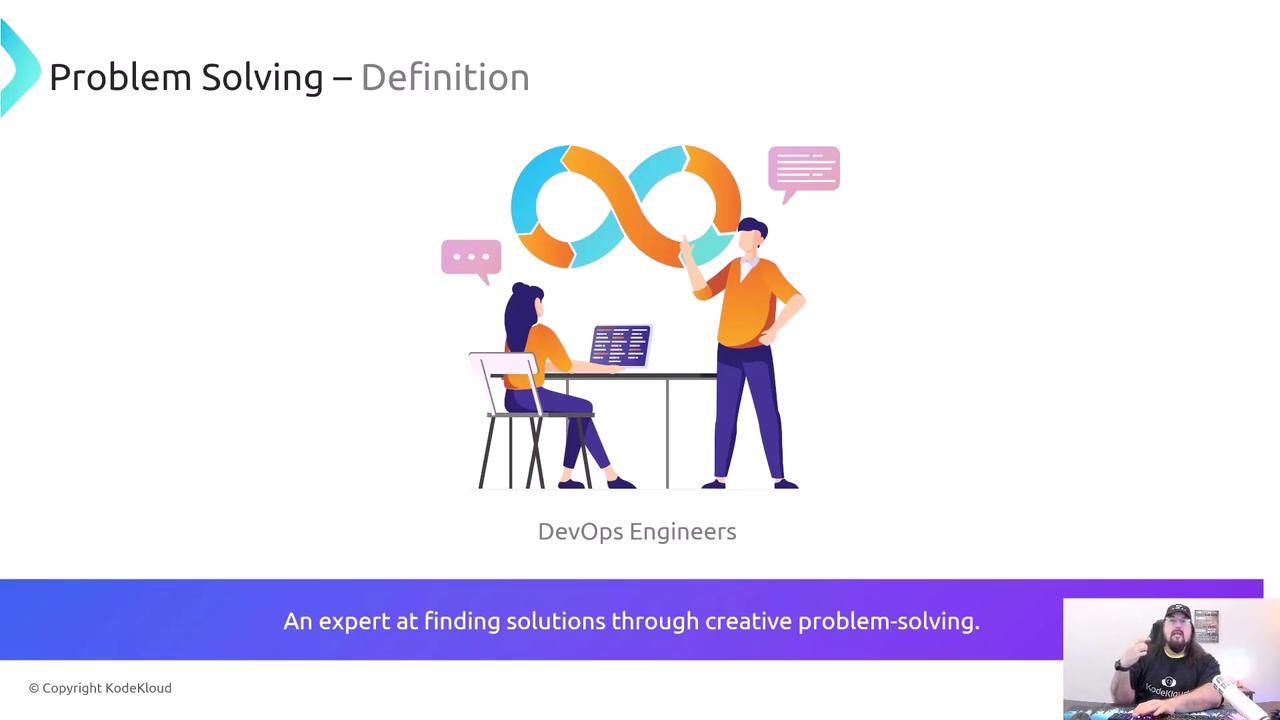
3. Being Methodical: Systematic Workflows
A methodical approach means breaking work into clear, repeatable steps. Clients value transparency, steady progress, and visible milestones.
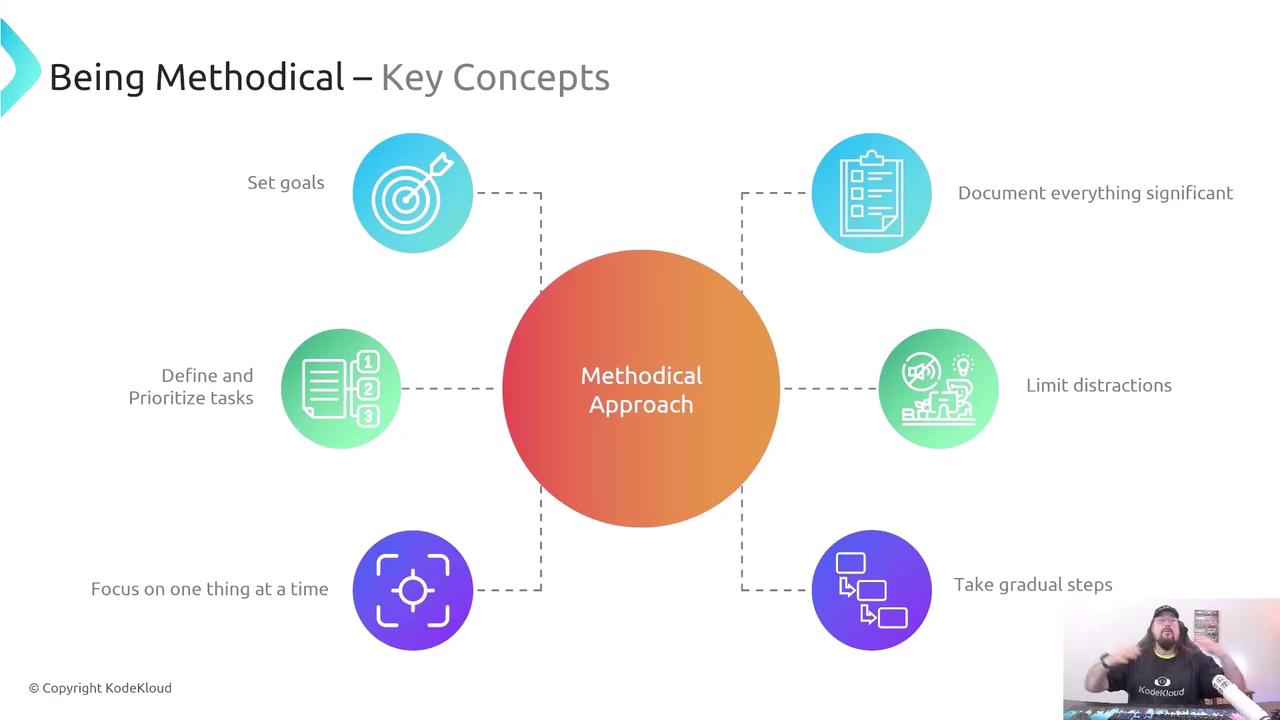
Core steps to maintain a methodical workflow:
- Define clear, measurable goals
- Document major decisions and milestones
- Break initiatives into prioritized, manageable tasks
- Focus on one task at a time to minimize context switching
- Use dedicated work blocks and limit interruptions
- Take consistent, incremental steps instead of large, sporadic pushes
Warning
Skipping documentation or jumping between tasks can erode client trust and increase technical debt.
Summary of Key Skills
Clients look for more than code—they want confidence in your process and mindset:
- Critical Thinking: Analyze situations objectively and base decisions on reliable data.
- Problem Solving: Apply structured, creative techniques and learn from every iteration.
- Methodical Workflow: Maintain transparent, documented progress with steady, measurable steps.
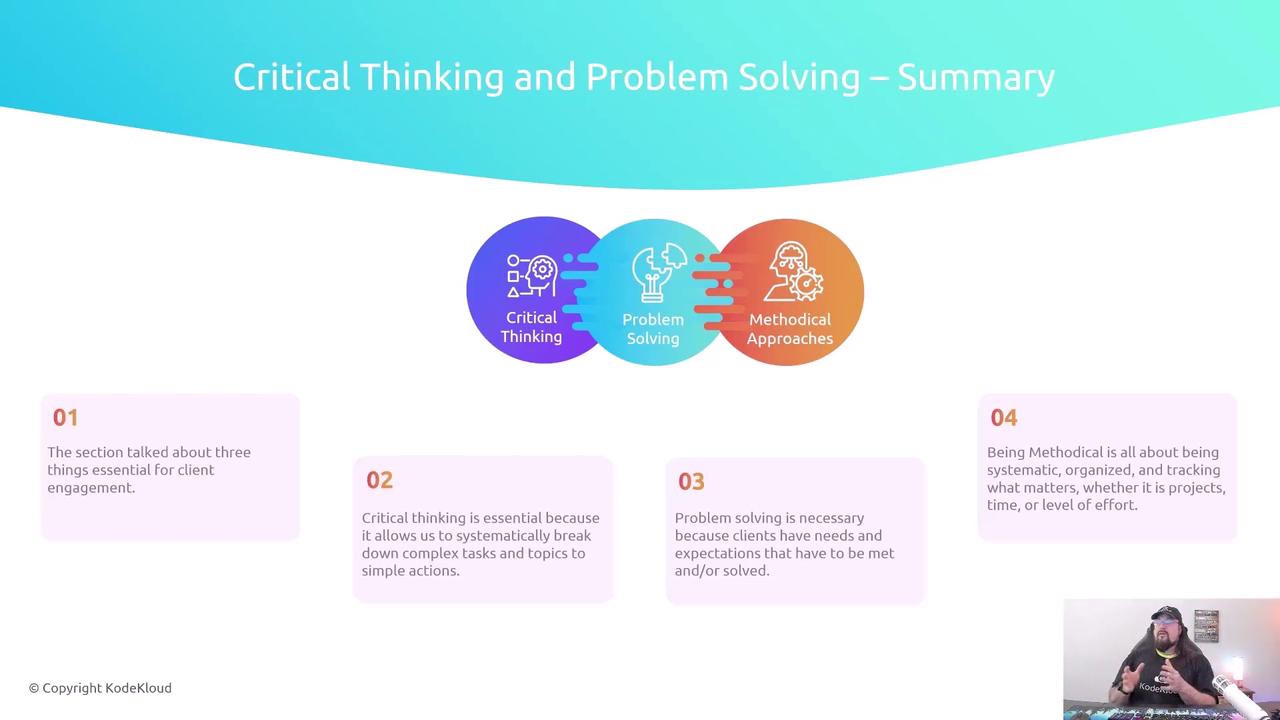
Thank you for joining this lesson! Mastering these soft skills will elevate your reputation as a trusted DevOps engineer.
Links and References
- Kubernetes Basics
- Root Cause Analysis (RCA)
- Design Thinking Overview
- Value Stream Mapping Guide
- Continuous Improvement in DevOps
Watch Video
Watch video content